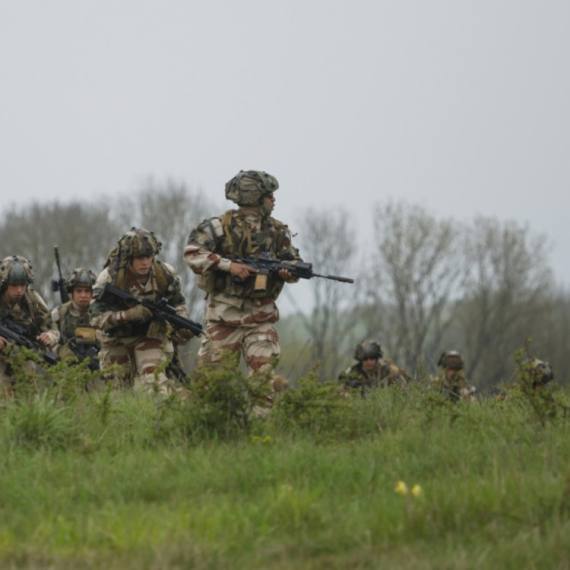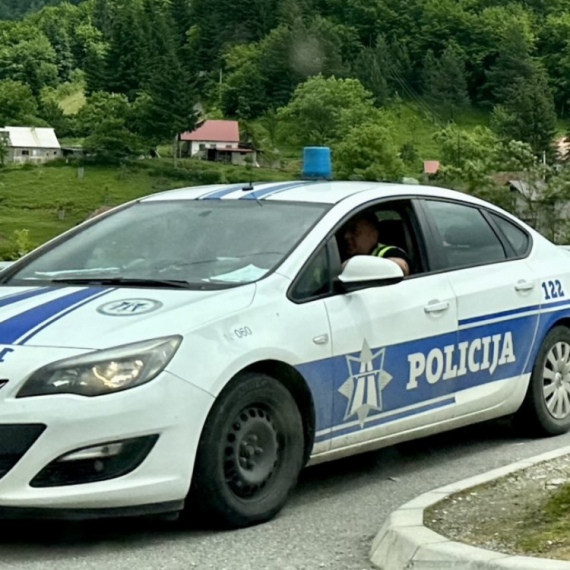Hague Tribunal president visits Belgrade
Hague Tribunal President Patrick Robinson is in Belgrade to present a regional project aimed at training judiciaries to prosecute the accused for war crimes.
Tuesday, 28.09.2010.
09:37

Hague Tribunal President Patrick Robinson is in Belgrade to present a regional project aimed at training judiciaries to prosecute the accused for war crimes. Robinson said at the launch of the project, worth EUR 4mn, that the majority of war crimes will in future be processed by national judiciaries in southeastern Europe. Hague Tribunal president visits Belgrade Robinson underscored that after 17 years of the Hague operation, there are still many victims who wait for justice. He also said he hoped Hague indictees Ratko Mladic and Goran Hadzic will soon be arrested and brought to justice. Robinson told reporters that he supports stands of Hague Chief Prosecutor Serge Brammertz, who has recently criticized Serbia for failing to fully cooperate with the Tribunal. "I can only repeat his concern where he expressed it, said Robinson after the presentation of the project of support to judiciaries of the region for trials on war crimes committed in the states of the former Yugoslavia." Robinson also said that the issue of cooperation between domestic justice and the Hague is more a question for the prosecutor. When asked whether he is satisfied with the work of Serbia's judiciary, Robinson replied that he is rather satisfied with the cooperation, giving the example of the Appellate Court, whose president Radmila Dragicevic-Dicic he met with today. He explained that the aim of the project that was officially launched today is to train the domestic judiciaries of the former Yugoslav states to prosecute the accused for war crimes with cooperation and experience exchange with their colleagues from the region and the Hague. When asked who would prosecute Mladic in case he is not arrested before the Hague ends its work, Robinson replied that in that case, Mladic will fall under the "mechanism for the completion of unfinished business." According to him, after the Hague ends its mission, trials will be functioning under the established mechanism for the completion of unfinished business. Solving crimes important for future Serbian Justice Minister Snezana Malovic has stated that establishing the truth about war crimes committed on the territory of the former Yugoslavia is important for the future, underscoring that Serbia's justice shows that it may successfully handle such difficult cases. “Political and every other interest of Serbia is not to have war criminals walk around freely. That is why establishing responsibility for the crimes committed in the territory of the former Yugoslavia during the wars in the 1990s is a joint work to be done by the Hague tribunal and all national courts in the region,” Malovic said in a statement published by Vecernje Novosti on Tuesday. Minister Malovic, who will meet with Hague Tribunal President Patrick Robinson today, said that a lot had been done on solving war crimes over the past seven years of work of judicial institutions that handle war crimes. Malovic recalled that Serbia had so far transferred 44 Hague indictees to The Hague, adding that the search for the two most wanted indictees is intensive. “Serbia also responded to all requests of the Tribunal regarding documentation, access to state archives, witness protection, releasing witnesses of duty to maintain confidentiality in order to testify before the Tribunal and all other requests,” said Malovic.
Hague Tribunal president visits Belgrade
Robinson underscored that after 17 years of the Hague operation, there are still many victims who wait for justice.He also said he hoped Hague indictees Ratko Mladić and Goran Hadžić will soon be arrested and brought to justice.
Robinson told reporters that he supports stands of Hague Chief Prosecutor Serge Brammertz, who has recently criticized Serbia for failing to fully cooperate with the Tribunal.
"I can only repeat his concern where he expressed it, said Robinson after the presentation of the project of support to judiciaries of the region for trials on war crimes committed in the states of the former Yugoslavia."
Robinson also said that the issue of cooperation between domestic justice and the Hague is more a question for the prosecutor.
When asked whether he is satisfied with the work of Serbia's judiciary, Robinson replied that he is rather satisfied with the cooperation, giving the example of the Appellate Court, whose president Radmila Dragicević-Dičić he met with today.
He explained that the aim of the project that was officially launched today is to train the domestic judiciaries of the former Yugoslav states to prosecute the accused for war crimes with cooperation and experience exchange with their colleagues from the region and the Hague.
When asked who would prosecute Mladić in case he is not arrested before the Hague ends its work, Robinson replied that in that case, Mladić will fall under the "mechanism for the completion of unfinished business."
According to him, after the Hague ends its mission, trials will be functioning under the established mechanism for the completion of unfinished business.
Solving crimes important for future
Serbian Justice Minister Snežana Malović has stated that establishing the truth about war crimes committed on the territory of the former Yugoslavia is important for the future, underscoring that Serbia's justice shows that it may successfully handle such difficult cases.“Political and every other interest of Serbia is not to have war criminals walk around freely. That is why establishing responsibility for the crimes committed in the territory of the former Yugoslavia during the wars in the 1990s is a joint work to be done by the Hague tribunal and all national courts in the region,” Malović said in a statement published by Večernje Novosti on Tuesday.
Minister Malović, who will meet with Hague Tribunal President Patrick Robinson today, said that a lot had been done on solving war crimes over the past seven years of work of judicial institutions that handle war crimes.
Malović recalled that Serbia had so far transferred 44 Hague indictees to The Hague, adding that the search for the two most wanted indictees is intensive.
“Serbia also responded to all requests of the Tribunal regarding documentation, access to state archives, witness protection, releasing witnesses of duty to maintain confidentiality in order to testify before the Tribunal and all other requests,” said Malović.
























Komentari 15
Pogledaj komentare